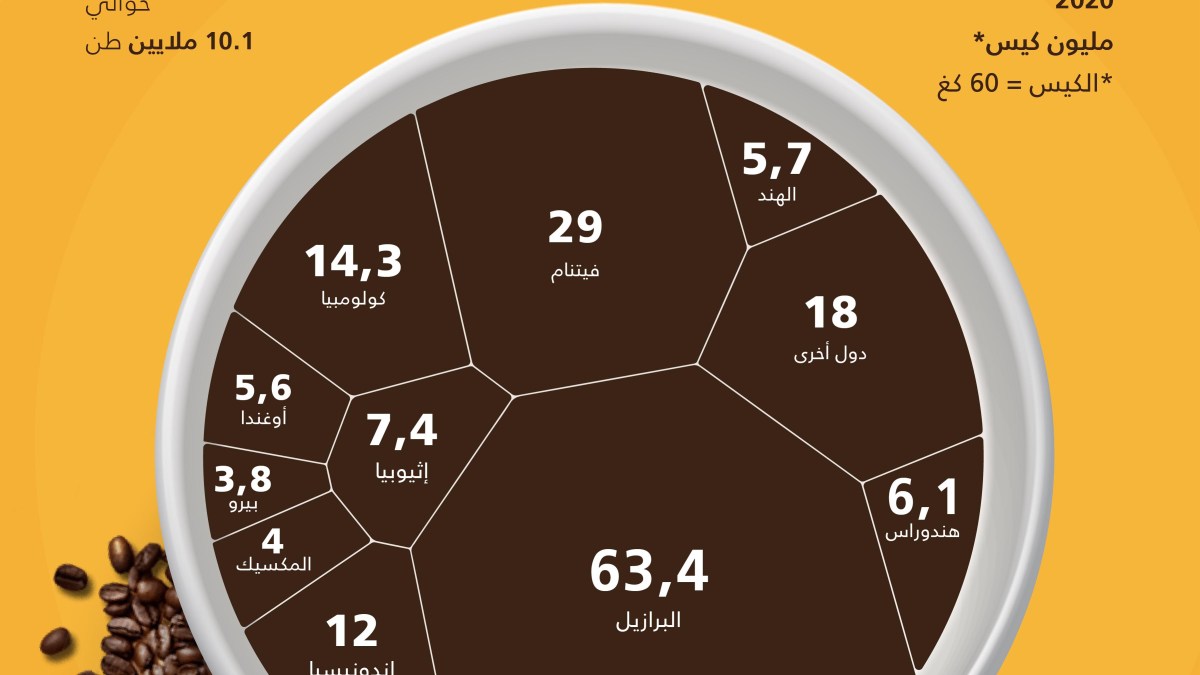Coffee is one of the most popular drinks in the world, so what is the best time to drink it in Ramadan? And what happens to the fasting body when you eat them?
We start with the food ingredients that a cup of sugar-free coffee (250 milliliters) offers us without any additives, which are approximately:
- Calories: One calorie
- Sodium: 6 mg
- Protein: 0.3 g
- Caffeine: 100 milligrams
What happens to the body of the fasting person when breaking the fast over coffee?
Drinking coffee directly for breakfast is not a good idea, we advise you not to do so, as caffeine increases the production of the amount of acid in the stomach and may cause heartburn or disorder in it.
At Iftar time, you need to drink water to compensate your body for what it lost during fasting, and on the other hand, coffee is diuretic and will not help you moisturize.
Also, if you have stomach problems — such as GERD or ulcers — coffee right at breakfast is likely to hurt you. Ask your doctor is it good to take caffeine?
What happens to the fasting body when drinking coffee at Suhoor?
Coffee is diuretic, and drinking it at Suhoor may mean that you will lose a large amount of water while urinating in the morning hours, so we also do not recommend that you drink it during Suhoor.
When is the best time to drink coffee in Ramadan?
The answer is generally two hours after you have had a healthy breakfast, drank enough water, ate dates, and had your meal; then your body has regained its activity and has been provided with fluids.
On the other hand, we do not recommend that you drink coffee late at night, as it may cause you insomnia and hinder your sleep.
These are general tips for each person, the nature of their body and their health status, but you may be used to drinking coffee, and you may be drinking enough fluids to compensate for what you lose by urinating. In all cases, consult a doctor, especially if you suffer from any acute or chronic disease.
What are the effects of coffee on health?
When drunk in moderation and within a healthy diet, coffee is good for your health.
Drinking up to 400 milligrams of caffeine is considered safe, which roughly equates to about 4 cups of coffee, although the amount of caffeine in drinks varies greatly.
Benefits of coffee when drunk in moderation on health:
- Stimulate the central nervous system, promote alertness and reduce the feeling of fatigue.
- People who drink coffee regularly have a lower risk of developing Alzheimer's disease and dementia.
- Boost your metabolism, which may help in your weight-loss efforts, but within a healthy diet.
- Reducing the risk of type II diabetes, says nutritionist Roxana Ihsani, "The risk of developing type II diabetes is reduced by 7% when you drink one cup of coffee a day. Those at risk of diabetes should consider adding a cup of coffee to their daily routine." That's according to a report by writer Emily Shafer in the American magazine "Eat this Not That."
- Provide the body with many antioxidants that are beneficial to health.
- "Coffee improves performance and helps generate energy. By consuming caffeine before or during exercise, athletes may notice an improvement in physical and mental performance. Athletes may also notice reduced pain and fatigue during exercise, decreased stress and improved endurance during high-intensity training, and also increased ability to concentrate."
The problem is not with the coffee
Carissa Galloway, a nutrition consultant, said: "Coffee doesn't contain a lot of calories. The problem is not coffee, but what you put in it. Just be careful not to add sugar to it, or any kind of additives that make it unhealthy." "Choose black coffee, or coffee with a little low-fat milk," she adds.
What are the effects of drinking too much coffee?
- Hallucination
- Confusion
- Vomiting
- spasms
- Arrhythmias
- Death
- Caffeine overdoses are usually caused by consuming energy drinks or caffeinated supplements, such as diet pills that claim to reduce weight, so stay away from them.
Caffeine travels in the bloodstream and crosses into the placenta, and since it is a stimulant that can increase the fetal heart rate, too much caffeine can also slow fetal growth and increase the risk of miscarriage. In all cases, the pregnant woman should consult her doctor to find out how much caffeine she can drink in coffee, tea and other drinks.

